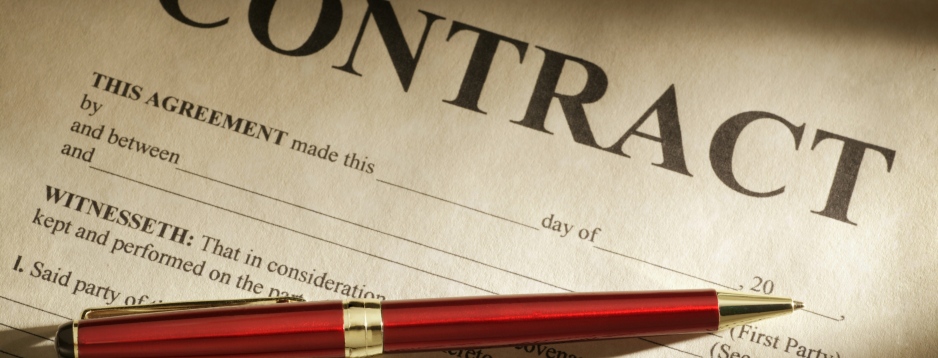
When you win a new piece of business, having clients sign a contract with your business should be part of your everyday operational procedures. After all, you and your team have done the hard work, which is winning the business in the first place. What’s some paperwork compared to that?!
Speaking from personal experience, you will generally find that the paperwork trail is left to the last minute and can be easily forgotten about as now the business is busy making sure that its going to deliver it. Sometimes the paperwork gets lost or the contract is drawn up and then gets lost in legalese for months on end.
Whatever the reasons, make the time and ensure that you have signed client contracts. It will be worth it as it helps keep your business valuation up. Buyers love to see signed client contracts, it’s practically an annuity stream. You should love them too! They simply are gold dust as they help with forecasting revenue and unless something goes horribly wrong – guaranteed income.
Encourage contracts to be drawn up and signed
Make contract signing part of new business process and take a proactive approach. You could offer the sales person an incentive / additional commission / bonus for getting the contract signed within a certain period. If that’s not quite right for your business as contracts are handled by your financial controller or a contracts manager then make it clear what timeframe contracts need to be signed in and manage it. Hold a monthly review where you check on the progress made. The longer you leave an unsigned contract, the harder it will be to get it signed because of i) amount of time lapsed ii) change in personal – oh, Fred no longer works with us and I’m not sure what you agreed with him…
You may want to record the different ‘stages’ of contract signing so its easier to mark progress made. Here are some example categories where the total count for each would be presented. The information can be further drilldown on as needed:
- Unsigned (no info)
- Unsigned (awaiting internal review)
- Unsigned (on hold)
- Unsigned (reviewed, awaiting internal signature before posting)
- Unsigned (posted, awaiting client signature)
- Signed (by client and scanned to filesystem)
Of course, there may be the rare occasion where an unsigned contract works in your favour. For example, there could be a price reduction based on increased volumes – which only comes into effect with a signed contract. But you should have worked that into your financial model at the outset and be able to bear the reduction in your profit margin. (In other words, that’s a poor excuse for not having the contract signed!!)
All my client contracts are signed – anything else?
If you’re reading this thinking ‘all my client contracts are signed’ give yourself a huge pat on the back. But that’s only one part done before you start celebrating, are all your supplier contracts signed too? And have all your signed contracts, suppliers and clients, been scanned and available electronically for the data room?
And that’s not all….
As well as having your signed contracts signed, do you have all your client contract key details in a single place for a quick and easy reference? Key contract details include:
- The client’s name (!)
- Is the contract signed or not?
- How long is the contract for? 1 year, 3 years
- How and when does it expiry?
- Extension terms
- Pricing
- Tier
Our Contracts Summary Template has all this key information in a spreadsheet and as such as will help you manage your client contracts better and you will be in a position to answer these questions as well as being proactive in retaining the business when it comes up for renewal or extension (on the basis that you still want their business).
- What revenue does the contract bring to the business?
- Is the client one of your top 3? Top 5?
- Are there any price changes during the contract lifetime and are the finance team aware of it?
- Do you know when your next 3 client contracts are due to expire?
- Does the contract need something in writing by a certain date in order to extend it for another term?
- Which contracts aren’t signed yet and why not?
During a business sale, you want to make sure that none of those signed contracts ends. So, do a deal to secure its extension, remember it’s going to impact your business sale price.
If a contract does ends, don’t lose any of the original details and keep a record of that too along with why it couldn’t be extended or renewed.
It’s worth spending time on contract gold dust especially when it has a direct impact on how much your business is worth to a potential buyer so start reviewing the state of your client contracts today!
Joanna Miller helps business owners navigate their way through the start to finish process of selling a business. Her specialty is helping owners understand how to prepare and make the most of their business sale process to maximise their company’s value. To understand how you can sell your business quickly for the highest sales price, purchase her book, “How To Sell A Business: The #1 guide to maximising your company value and achieving a quick business sale”
